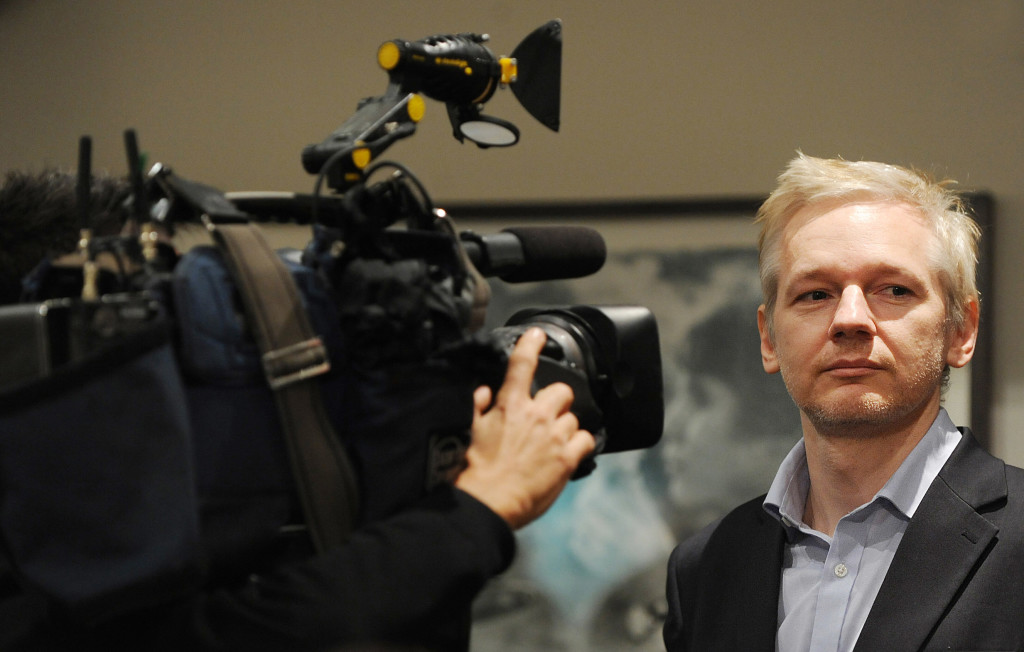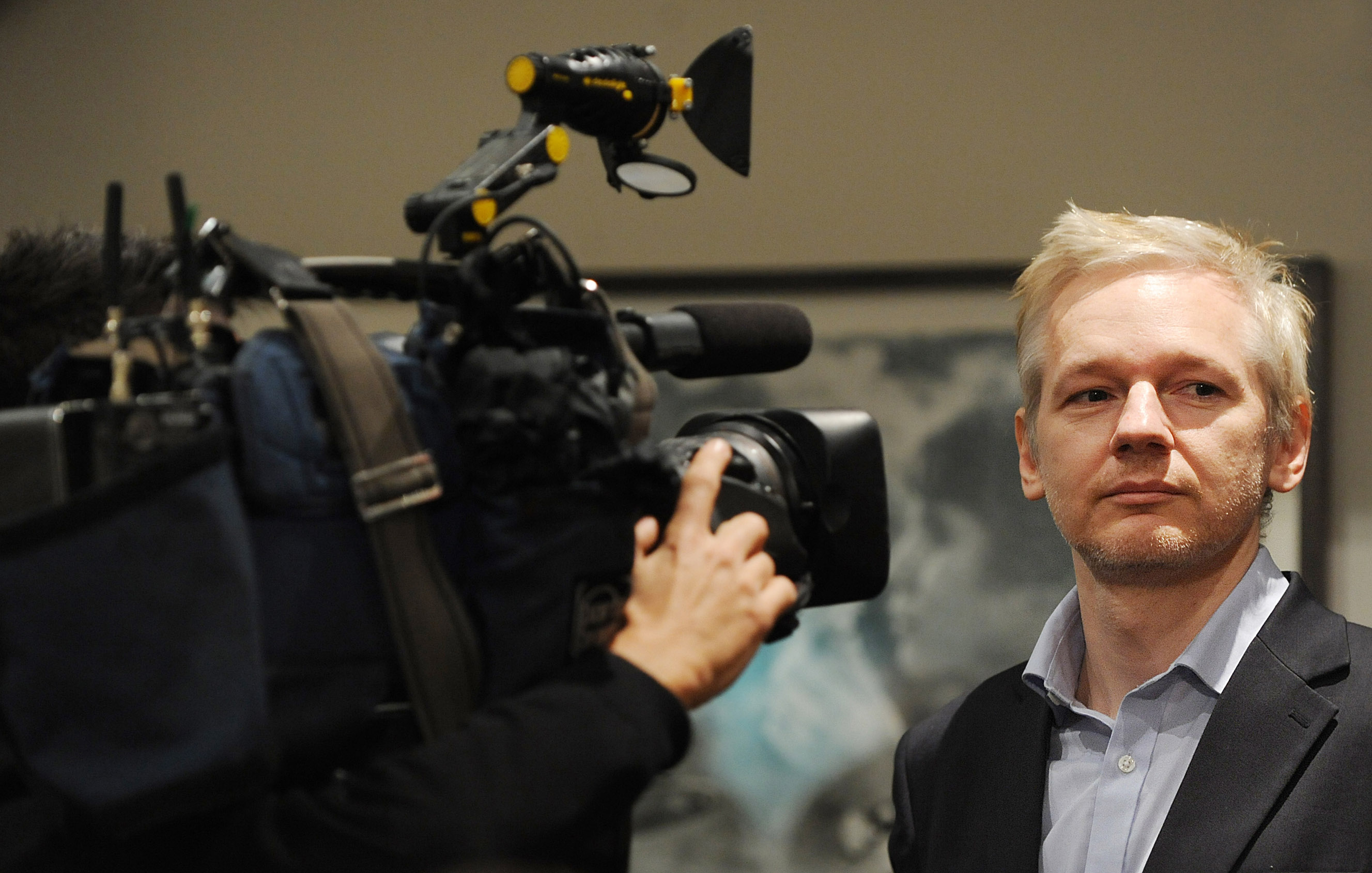Prosecution Cross-Examines WikiLeaks Suspect

November 30, 2012
Share
FORT MEADE, MD — Today the prosecution got its chance to cross-examine PFC Bradley Manning, accused of leaking more than half a million classified documents to WikiLeaks, as they begin to build their case that Manning’s treatment in military custody did not rise to the level of “unlawful pre-trial punishment.”
Yesterday, in his first appearance on the stand, Manning denied reports that he had fashioned a noose out of his bed sheets while imprisoned in Kuwait after his arrest. But after prosecutor Maj. Ashden Fein introduced into evidence a pink bed sheet, Manning acknowledged that had in fact made it into a noose.
Fein also introduced into evidence sandbag ties that Manning had allegedly fashioned into another noose, and photos of pieces of metal he had allegedly stashed to later harm himself. Manning testified that while he recognized the sandbag ties, he did not use them to make a noose. He also testified he did not recognize the metal.
Fein suggested that Manning’s description yesterday of being totally cut off from the outside world in Kuwait didn’t stand up to scrutiny, because he was allowed to make phone calls to his aunt, who even updated his Facebook page for him.
In regards to Manning’s complaints yesterday about his detention in the brig at the Marine Corps base in Quantico, Va., Fein introduced a series of questionnaires completed by Manning and the Army company commander who visited him about once a week. Manning testified yesterday and today about his great affection for his company commanders. “They were the best,” he said today, making sure he didn’t feel like he was “just being left in a sea of Marines,” in Quantico. Fein pointed out that in these questionnaires, Manning had repeatedly reported that the guards and facilities at Quantico were “very professional,” and even “excellent.” However, Manning’s defense attorney, David Coombs, later noted that on 22 separate occasions Manning complained that he didn’t understand why he was being kept on “Prevention of Injury” watch.
The prosecution found itself on shakier ground when it entered into evidence a series of “voluntary statement” forms Manning filled out during his stay at Quantico; these statements were required to show Manning’s volition when there was a change to his routine, such as missing his 20-minute “sunshine” or recreation calls outside his cell. Manning said he felt compelled to write these “voluntary” statements, saying he was ordered by guards, “Here is a voluntary statement; fill this out.” On one occasion, Manning testified, a Marine sergeant ripped up a form he had filled out, demanding he re-write it differently. He eventually refused to fill out the forms on the advice of his attorney.
The most unique evidence entered today was a collection of audio recordings of Manning’s conversations with his visitors at Quantico. The tapes were not played in court, but Fein quoted from the transcripts widely. He pointed out that in 20 recorded conversations, Manning never complained to visitors about his treatment. But under questioning by Coombs, Manning said that because he knew the conversations were being recorded, he made a point not to discuss his treatment. “I was also concerned they may end my visits because I’d done something wrong,” he said. “I understood you weren’t supposed to talk about what was going on in the facility, not give any specific details for visitors for security reasons. … I figured that would be a very quick reason to end those visitations.”
Manning was the last defense witness, leaving the prosecution to make their case. After Manning’s testimony, they called Lt. Col. Robert Russell, another psychiatrist who had treated Manning at Quantico. Earlier this week, two other psychologists who cared for Manning there testified for the defense earlier this week that Manning’s POI status was unjustified, but Russell indicated more caution was warranted.
The prosecution will continue their case on Saturday, then the hearing will resume on Wednesday after a two-day break.
Related Documentaries
Latest Documentaries
Related Stories
Related Stories
Explore
Policies
Teacher Center
Funding for FRONTLINE is provided through the support of PBS viewers and by the Corporation for Public Broadcasting, with major support from Ford Foundation. Additional funding is provided the Abrams Foundation, Park Foundation, John D. and Catherine T. MacArthur Foundation, Heising-Simons Foundation, and the FRONTLINE Trust, with major support from Jon and Jo Ann Hagler on behalf of the Jon L. Hagler Foundation, and additional support from Koo and Patricia Yuen. FRONTLINE is a registered trademark of WGBH Educational Foundation. Web Site Copyright ©1995-2025 WGBH Educational Foundation. PBS is a 501(c)(3) not-for-profit organization.





















